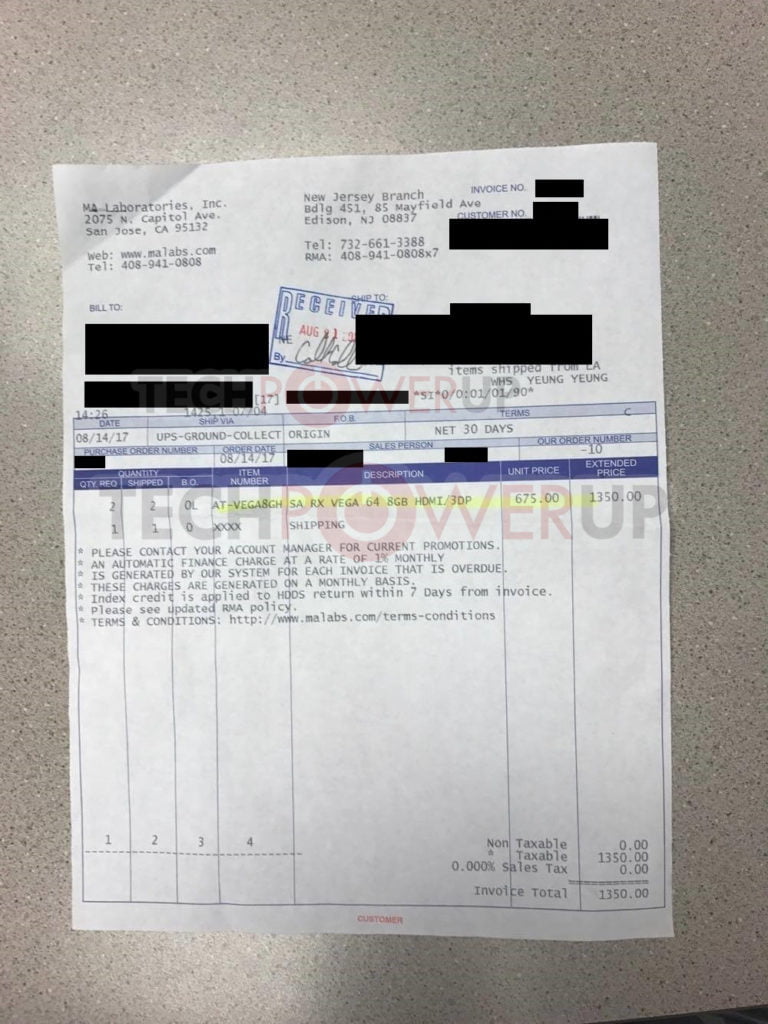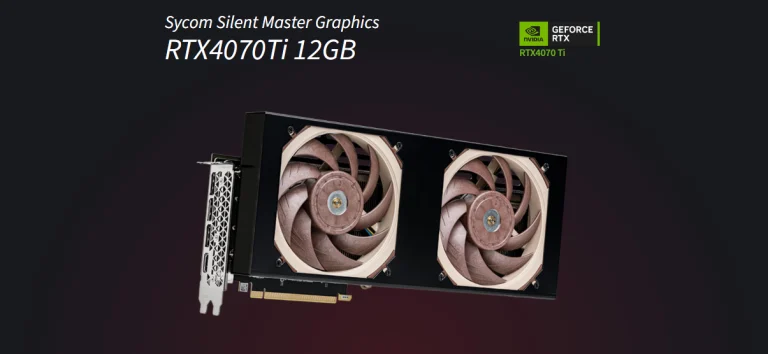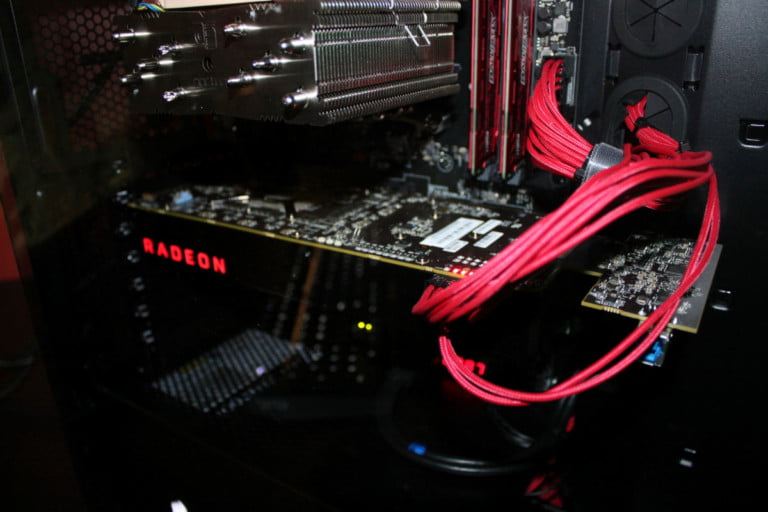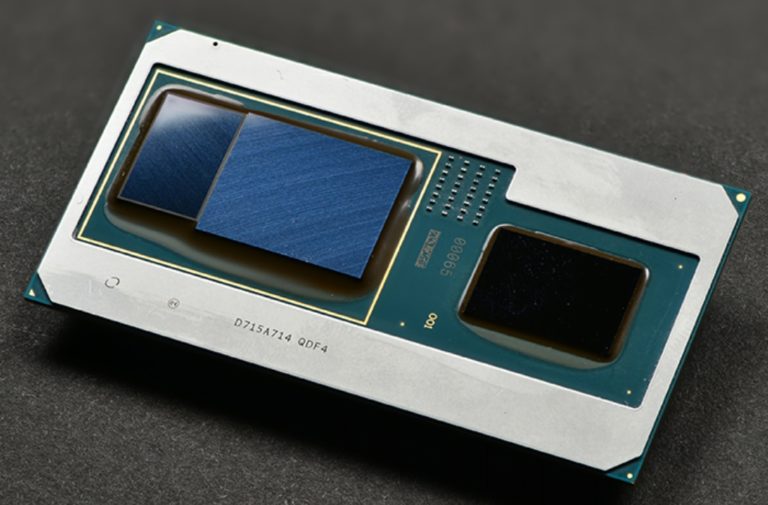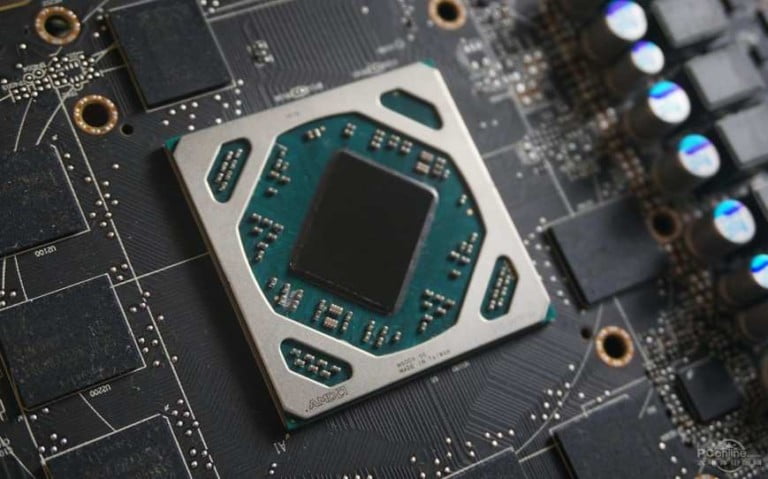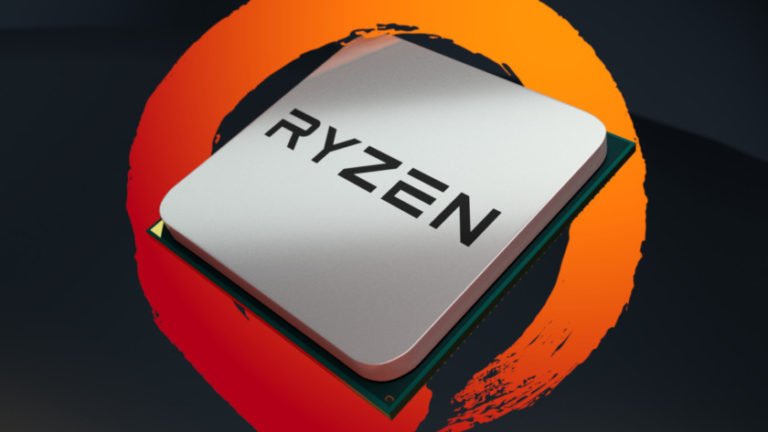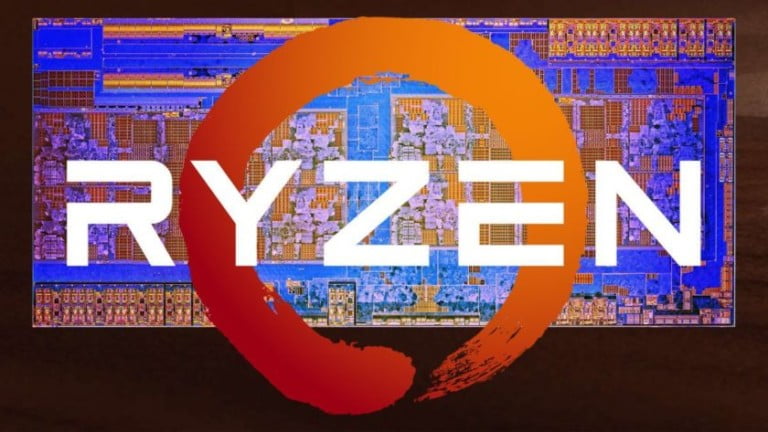Here’s Why Retailers are Selling $499 RX Vega 64 for Over $700
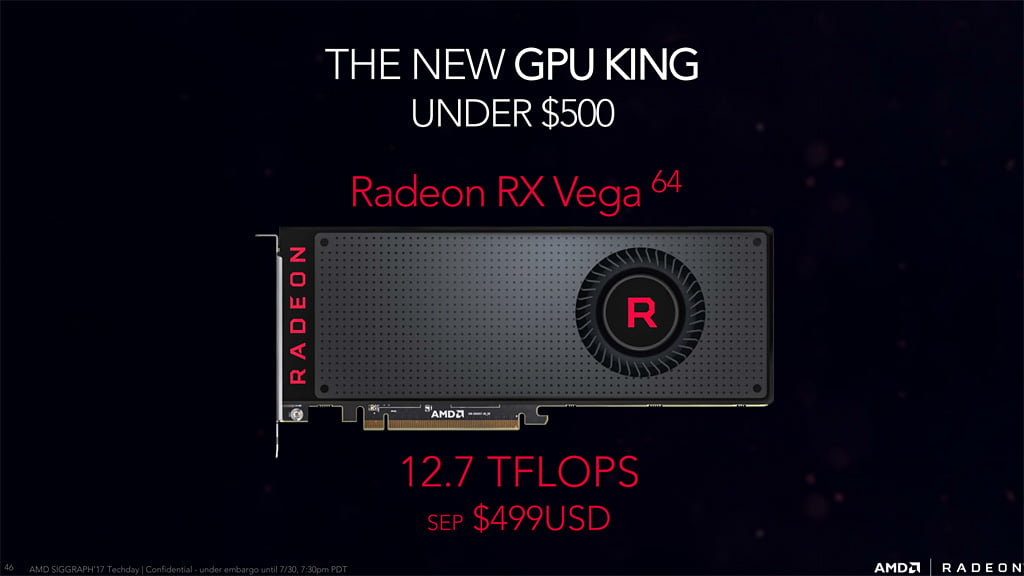
Lately, there has been a lot of confusion regarding Radeon RX Vega 64 price. Launched on August 15, AMD’s flagship GPU ran out of stock within minutes of launch. Since then, there’s been shortage of the card on the market, which resulted in prices going well above AMD’s official $499 MSRP.
Initial reports suggested the retailers adjusted prices after the launch to sell GPUs with high markups. But it seems that retailers have someone else to blame for the issue.
It turns out that distributors—entitites that supply inventory to retailers—have inflated Vega prices even at their level. Leaked invoices that surfaced via TPU, show that some distributors are quoting USD $675 per unit of a reference RX Vega 64 to retailers.
A distributor should ideally sell the Vega 64 SKU to a retailer at a much lesser price than $499 so that the latter can make its margin. But, if retailers themselves get a quote of $675, they will have no choice but to sell the product above $700.
What AMD needs to do is to replenish the stock so there is no reason for anyone, be it a distributor or retailer, to adjust to a higher price point than AMD’s suggested etail price (SEP) of $499. The sooner Team Red can get its GPU prices pulled down, the better, because at current prices, Nvidia definitely has an advantage in terms of price per performance.
But how long would AMD take to restock the RX Vega 64? The question leads us to the second part of the story.
AMD’s Radeon RX Vega supply issue will persist at least until October, according to a report from DigiTimes. Sources of the tech reporting site indicate that low packing yield rates are the reason why AMD can’t meet the demand.
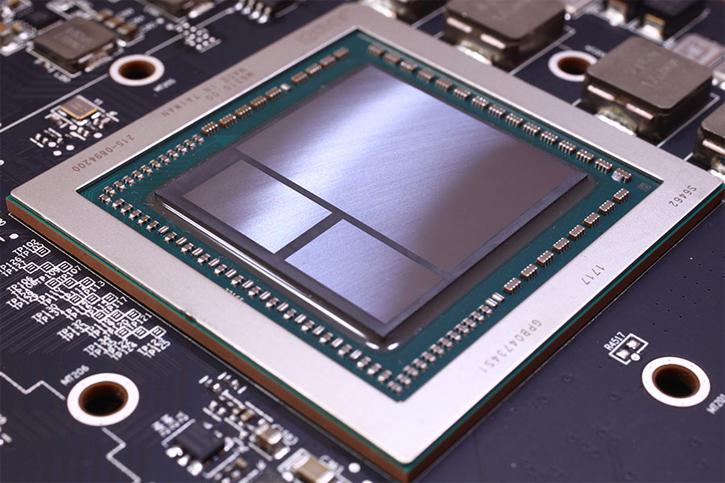
AMD RX Vega cards integrate second generation high bandwidth memory (HBM2) into the GPU. The use of HBM2 makes packaging process a little complicated, causing lower than anticipated yield rates. Other sources point towards issues with SiP technology being used by Advanced Semiconductor Engineering (ASE).
The report ends with the information about Nvidia’s plan of delaying the launch of its next-gen Volta GPU by early 2018. The company CEO Jensen Huang has already stated that RX Vega isn’t a threat to Pascal, so there is no reason to rush with mass production of Volta.

